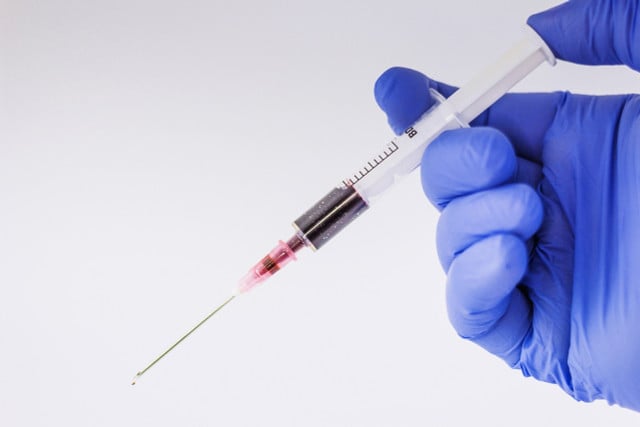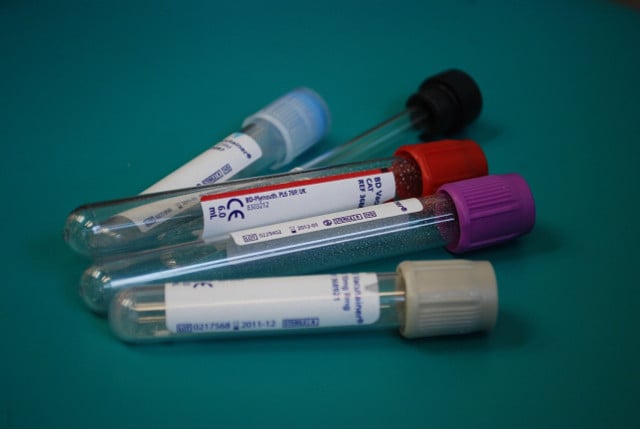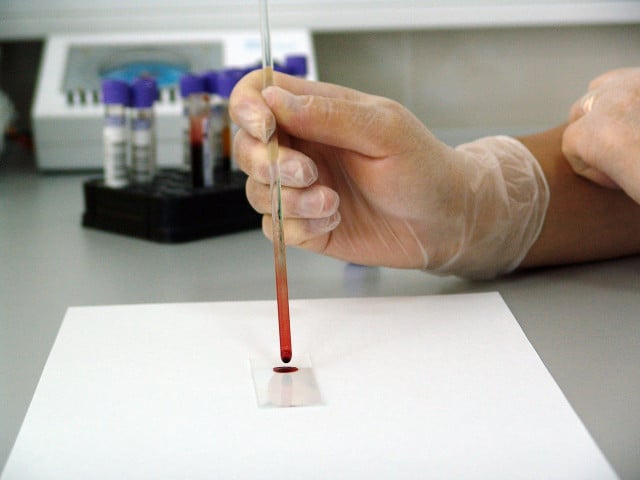
Regular blood tests are important if you eat vegan. This is how you can prevent deficiency symptoms. You can find out here which minerals and vitamins are particularly important.
A vegan diet should be as balanced as possible so that it can provide you with all the nutrients you need. This requires a special awareness of which foods are good sources of certain vitamins and minerals. And: You definitely have to supplement B12 with a plant-based diet.
As a vegan, you should have regular medical check-ups to get an overview of your health. The blood values can show vegan people how their vitamin and mineral supply is. Vitamins and minerals ensure healthy bodily functions. A deficiency can have very different effects, from tiredness to feeling unwell to depressive moods.
Here we show you which blood values you should keep an eye on if you eat vegan.
Blood levels of vegans: important vitamins

(Photo: CC0 / Pixabay / frolicsomepl)
In addition to the usual values in a routine test, vegans should also have these blood values checked:
-
Vitamin B12: When doing the vitamin B12 check, make sure that you have your holo-transcobalamin value (holo-TC) tested. This gives you the values for both the active and the inactive vitamin B12. This result is more meaningful than the simple vitamin B12 level.
-
Vitamin B2 (riboflavin): We need vitamin B2 for our protein and energy metabolism, among other things.
-
Vitamin D: The sunshine vitamin strengthens the immune system.
If the levels of these vitamins are too low, you can get clarification from a doctor on how to get more of them.
Minerals: blood levels for vegans

(Photo: CC0 / Pixabay / kropekk_pl)
In addition to vitamins, minerals are also important for a healthy lifestyle. As a vegan, have your blood levels tested for mineral content as well.
These are the most important mineral values:
-
Iron: Iron deficiency causes fatigue, weakens the immune system and can reduce the ability to concentrate. Iron deficiency is also a widespread phenomenon and should be checked regularly by all people, whether vegan or not.
-
Calcium: Calcium is the most important building block for building bones and teeth. Have this value tested to prevent long-term complaints.
-
Zinc: The trace element supports, for example, wound healing, the immune system, the complexion and the ability to reproduce. Deficiency symptoms can have a variety of consequences. So have your zinc levels tested as well.
-
Folic acid: Folic acid or folate ensures the formation of new cells. This is particularly important for pregnant women to support the growth of the baby.
-
Iodine: Iodine is essential for hormone production and other thyroid functions.
Omega-3 fatty acids and selenium are other values that you can have tested if you are interested. Talk to your family doctor about this in order to determine the blood values to be tested in advance.
General information about the blood test

(Photo: CC0 / Pixabay / PublicDomainPictures)
For a healthy vegan lifestyle, it is advisable to test your blood levels regularly. In this way you ensure that you are supplied with the most important vitamins and minerals.
What you should know about the blood test:
- Ideally, test your blood once a year. So you can be sure that you will recognize a nutrient deficiency at an early stage.
- As an alternative to the blood count, the values can also be checked in a urine test or with a serum.
-
Non-vegans benefit from a regular blood count just as much as vegans do.
- In the case of a complete blood count, the laboratory examines other values in addition to the normal parameters. Various blood values can be used to determine vitamin or mineral deficiencies. The full blood count costs around 100 euros.
- In order to explicitly test individual blood values, you have to expect costs of 15 to 40 euros per value in most cases. If symptoms indicate a clinical picture, the statutory health insurance will cover the costs.
Keep in mind that the blood values are only a snapshot. Therefore, even if the result is inconspicuous, continue to pay attention to a balanced diet and a healthy lifestyle.
Read more on Techzle.com:
- Donate blood: You should know that beforehand
- Promote blood circulation: You can improve it with these measures
- Vegan cheese: the best plant-based cheese alternatives and products